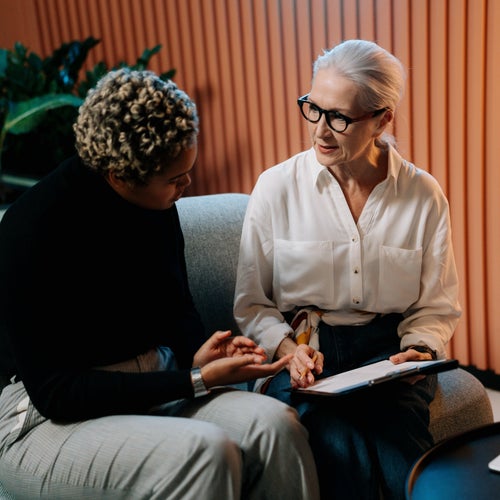How to be a Good Interviewer:

Read our guidelines below on how to conduct a good interview and find answers to commonly asked questions.
Approach the interview methodically.
Be prepared.

It's important to prepare thoroughly before interviewing a potential employee so that you don't come across as disorganized and unprofessional. Be sure to brush up on the interviewee's skills and employment history beforehand by reading their resume, and print out a copy for reference during the interview.
Choose your questions wisely.

Create a list of questions that are tailored to the role you are hiring for, such as questions relating to skills, job knowledge, and work history. You should also include behavioral and situational questions to give you a good idea of how the candidate handles challenging situations. Preparing a list will also ensure that you ask each candidate similar questions.
Have an interview structure.

An unstructured interview can cause you to lose track of the interview and end up wasting your and the candidate's time. The best way to avoid this is to set out a structure during your interview prep.
For example, make the first part of the interview a brief introduction and description of the main goals of the position and what your company hopes to achieve, followed by interview questions. Lastly, give the interviewee an opportunity to ask a few questions of their own.
Take notes and listen carefully.

Notetaking is essential in any interview. It will help you keep track of how each candidate performed and allow you to compare candidates once the interview stage is over. Be sure to clear your mind and focus on what the candidate says so that you can note any positive or negative attributes. You might also want to use a scorecard to assess the candidate's answers effectively.
How to Improve as an Interviewer:
1. Discover your biases.
We all have subconscious biases that we may or may not be aware of. Our biases can affect the way we judge candidates during the interview processes. To find out what your biases are so that they won't cloud your judgment, consider taking a test, such as Harvard's famous Implicit Association Test.
2. Interview with coworkers.
If you don't feel comfortable interviewing candidates by yourself, you can have a coworker assist you or conduct a panel interview. This way, you can divide the interview into parts and share questions. This will give you the opportunity to pause and listen while someone else is speaking.
3. Be willing to go off script.
Having a list of questions to follow is great, but try to be conversational during the interview so that the candidate is able to share more about their past experiences and the skills that they have developed. Sometimes this just means asking follow-up or exploratory questions to draw out more information.
How to Create an Interview Process


